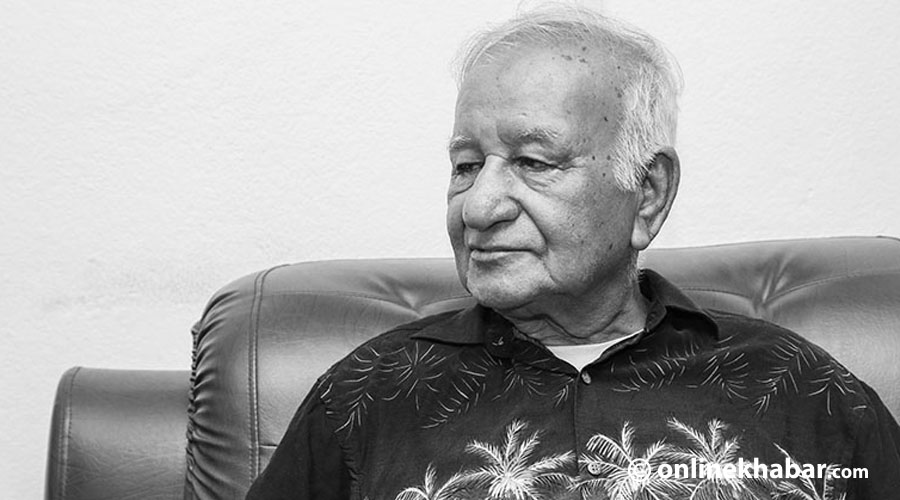
Do you know about ‘flaxseed’ (‘alas’ in Nepali), and its enormous nutrient value? Most probably, you don’t.
Until two years back, I, too, was ignorant of this substance that comes from the plant linum usitatissimum.
Said to have originated in ancient Egypt and China, flaxseed is also known as linseed and widely grown in Europe, South America, some parts of USA and Asia. In early 2000s, this wonder seed received a massive hype in the West. That was when health-conscious people shifted to flaxseed from ‘wheat germ’. Given its vast nutrient value and benefits, some have even dubbed it as the ‘wonder seed’ or the ‘super seed’.
Apart from the raw seeds, flaxseed came to be available in bottles—in oil or milled form and pills. Other than the food-grade flaxseed and its oil, it is also extensively used (more commonly called linseed in this case) in the manufacturing of medicine and the production of varnishes, polish and paint.
The stem of the flax plant is processed into fibres that give us the linen table cloths, the crisp bed sheets—and the ‘chic’ linen fabric. Raw flaxseeds can be consumed in whole, but to obtain its best nutritional qualities and for easy digestion, the ground or milled form is preferable. Flaxseeds are easy to grind at home using a coffee grinder, food processor or blender. Ground flaxseed, for its oil content, has to be refrigerated.
What nutrients does it have?
Among the world’s healthiest food, flaxseed is considered one of the richest sources of plant-based omega-3 fatty acids called alpha-linolenic acid (ALA).
Besides, it contains micro-nutrients, dietary fibre, manganese, vitamin B1, healthy fat, Lignan (type of antioxidant phytoestrogen), antioxidants, iron, zinc, calcium, protein, potassium, magnesium, folate, soluble fibre and boron. Labelled as a ‘low-carb food’, flaxseeds are made up of 29% carbs, while a massive 95% of that amount is fibre.
Health Benefits
Cancer
Extensive studies have shown that flaxseed not only reduces the risk of, but helps fight cancer of breasts, colon, ovary and the prostrate. The omega-3 fatty acids in it curbs tumor incidence and growth. Lignans, a plant compound contained in polyphenols is found in high percentage in flaxseeds. Regular intake of flaxseed potentially helps to cut down the risk of hormone-associated cancers.
Cardiovascular health
Research has shown that omega-3 fatty acids (alpha-linolenic acid, or ALA) is essential for wholesome growth, a healthy heart, and a good brain function. It also reduces the risk of one of the chronic ailments such as coronary heart disease.
If marine products like fish are high on omega-3, flaxseed is considered to top the chart as a plant-based omega-3 repository. One tablespoon of ground flaxseed is said have 1.8 gram of omega-3, much higher than that of other seeds such as, sesame seeds.

Lower cholesterol
After doing a lipid profile, the lab report lets you know about your good (HDL) and bad (LDL) cholesterol (oxidised LDL) levels. The high side of LDL is generally associated with an increased risk of heart disease. Researchers have found that regular intake of flaxseed immensely helps reduce the LDL level, along with your blood pressure and triglyceride (fat count in the blood) levels.
Researchers at the Iowa State University’s Nutrition and Wellness Research Center found that people who included flaxseed in their daily diet had their cholesterol levels lowered. Suzanne Heindrich, lead author of the study, said, “For people who can’t take something like Lipitor (drug used for cholesterol), this could at least give you some of that cholesterol-lowering benefit.”
Both flaxseed and chia (masyang in Nepali) seeds are close contenders for a rich source of lignans, which act as potent antioxidants in the body. It’s been proved that flaxseeds are much richer in lignan than chia.
The Health Canada, (Santé Canada), a department of the government of Canada responsible for national public health, has even made a health claim in favour of the wonder seeds.
Diabetes
Experiments carried out by medical researchers have shown that daily intake of ground flax helped to remarkably lower blood sugar and HBA-1C levels. As a low whole grain glycemic food, it helps stabilise blood glucose levels.
Packed with 3 kinds of fibre—soluble, insoluble and mucilage (viscous or gelatinous solution from plant roots, seeds, etc.), flax keeps the body more resistant to sugar spikes in blood and improves insulin sensitivity in glucose-intolerant patients.
To sum up, flax as a staple dietary food has a world of benefits not only to keep us healthy but also to ward of life-threatening health diseases. Other benefits we may derive from flax are:
*They are good for digestion
*Help relieve constipation and diarrhea
*Help lose weight
*Reduce hot flashes in women and also help maintain hormonal levels
*Benefit skin and hair.
How much and how to eat?
For a beginner, this may be a little tricky proposition, quite natural. To work it into your staple diet, a helping of 2 to 3 tablespoon of ground or milled flaxseed is enough to get the nutritional value required for the day. You can have ground flaxseed raw, roasted or whole—better if milled.
As to how to incorporate flaxseed in your daily diet, you can simply:
*Take it neat
*Add it to your dal (lentils), soups, and curries
*Mix in roti batter, cake mix, pancakes or breads
*Add to your breakfast cereals like oatmeal, cornflakes, porridge
Since we Nepalis love achars (chatnis), you can add it to your achar instead of sesame seeds.
Side-effects
Before introducing flaxseeds into your daily diet, you have to understand that nothing of too much is beneficial to your health. So a newcomer is recommended to stick to moderation.
Non-adherence to a stipulated dose may stress your digestive system and cause gas, bloating, abdominal pain, diarrhea and other gastrointestinal side effects.
Pregnant and lactating women, infants and young children are not recommended to eat flaxseeds.
Where to buy flaxseeds in Kathmandu?
If you are keen on buying flaxseeds, try grocery stores in Ason and Indrachowk. The current price of flaxseed is Rs.250.00 per kilo.
So, what are you waiting for?
Singh is a 65-year-old outdoors man, lost in his own little adventures. Interests? It used to be hunting; it stopped during the Maoist insurgency. Then came fishing followed by mountain biking. So, his passions are writing, mountain biking and fishing. Ambition? Ride his mountain bike from Beni, Baglung, to Lo Manthang and Upper Mustang.






















